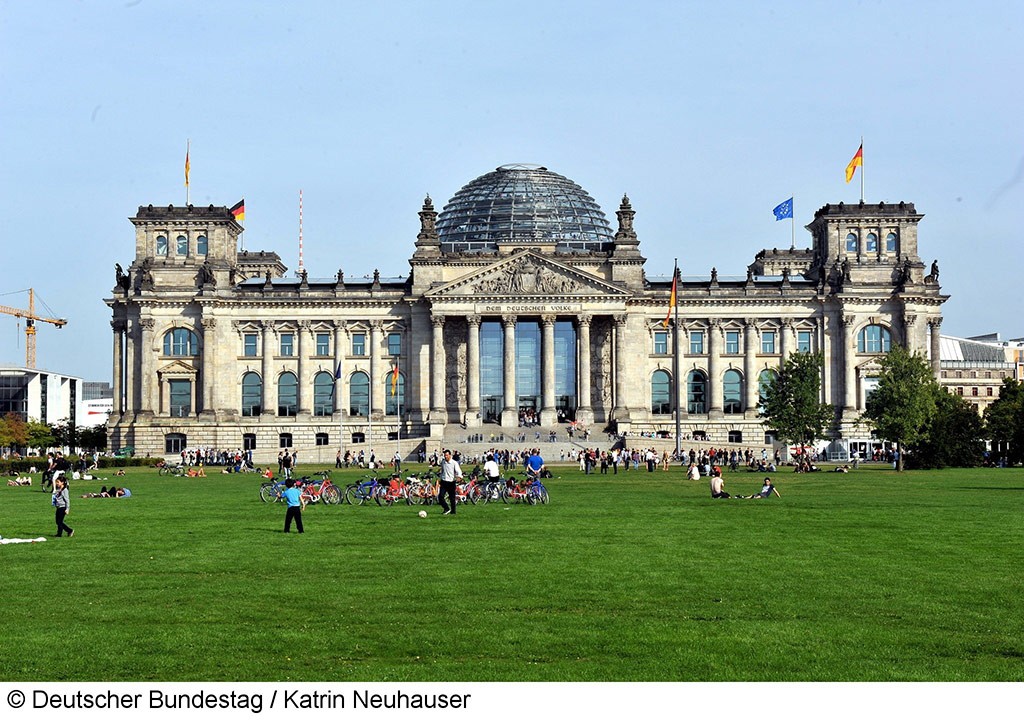The original Reichstag building was designed in 1884 by architect Paul Wallot. In 1894 the building opened as the Reichstag of the German Empire. After 1918 it became the parliament of the Weimar Republic.
In 1933, the so called Reichstag Fire completely destroyed the plenary chamber. The Dutch Marinus van der Lubbe, a communist, was convicted and sentenced to death. Adolf Hitler used the fire as an excuse to persecute political opponents.
The Reichstag was heavily damaged during the Second World War. Seizing the building was one of the last battles in the conquest of Berlin. Assaulting the iconic building on 30 April 1945, two Soviet soldiers raised the Soviet flag on the Reichstag building. The scene was re-enacted for a propaganda photo on 2 May. The German parliament, the Bundestag, sat in Bonn from 1949 to 1999. After the division of the city, the Reichstag building, which was located in the British sector, soon became a symbol of German unity. For that reason the Bundestag decided to maintain the Reichstag building, which had suffered severe damage during the war.
The Reichstag building, decrepit and ruined, was partially refurbished in the 1960’s. After German reunification, the Bundestag decided to use the building as a seat of parliament again. Since 1994, the building has rebuilt and renovated according to plans by star architect Norman Foster.
Reopened in 1999, the Reichstag now functions as a seat of the federal German parliament. The roof terrace and glass dome of the Reichstag Building can be visited by members of the public, and offer spectacular views of the parliamentary and government district and Berlin’s sights. Various 90-minute tours are available when Parliament is not sitting.
Reichstag Building, Platz der Republik, Berlin, Allemagne
+ 49 ((0)30) 227-32152 besucherdienst@bundestag.de
